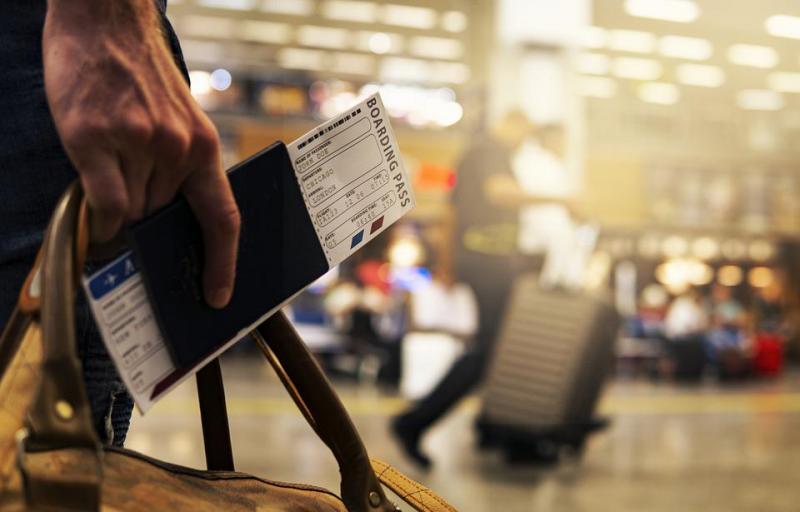Traveling With Cryptos - What Are the Key Considerations?

You've probably heard about cryptocurrencies like Bitcoin, Litecoin, and Ethereum. They're not physical coins. They exist only online. You can't hold them in your hand unless you have a digital version of them stored on a computer or mobile phone device (more on this later).
They are also called "cryptocurrencies" because they are encrypted using cryptography and blockchain technology. Cryptography means that each coin is unique, and blockchain technology ensures that every transaction is verified against previous transactions to prevent fraud or double-spending of the same coin (which would devalue it).
They're known as "coins" because they operate like cash – you can buy goods with them anywhere in the world where merchants accept them as payment for goods or services rendered. You need only an internet connection to exchange your coins for goods or services anywhere in the world where merchants accept crypto coins as payment for goods or services rendered.
Are Crypto Coins Legal in My Country?
Cryptocurrencies are legal in many countries around the world. Therefore, one can take trade in the cryptocurrency markets in these countries. However, some countries have prohibited or restricted their use or possession.
Cryptocurrencies can be used for various purposes, such as buying a ticket to another country, purchasing goods and services, paying bills, and sending money to other people. Once you know that the cryptocurrency you wish to use is legal in your country, then it’s time for you to start considering how best to take them with you when traveling abroad.
What Are the Tax Implications of Crypto Coins?
The tax implications of traveling with crypto coins vary by country. For example, if you visit the United States, it is legal to use Bitcoin as a form of payment. However, the IRS considers Bitcoin to be property rather than currency and has issued guidance stating that cryptocurrencies are taxable assets.
If you are holding crypto coins in your wallet while traveling outside of the US, then you will transfer them back into USD when returning home. Any gains will be subject to capital gains taxes at the time you sell them or trade them for other currencies such as Euros.
Crypto coins can also have tax implications in countries where they are not legal tender. For example, if you want to exchange Ethereum for Japanese yen so that you can buy food at an airport kiosk in Tokyo but do not know how much money exchange rates will cost per transaction.
Will Customs Confiscate Your Cryptocurrencies?
The answer to this question depends on the country you are traveling to.
If it is illegal to import or export cryptos in a particular country, you may be asked about your coins at customs. If you do not declare them, they will probably be confiscated, and you will face penalties for smuggling goods.
If you are importing or exporting cryptos in a country where there is no ban on them but they have been banned by another government. Nothing is stopping the customs officer from confiscating your coins unless he/she knows that the cryptocurrency was obtained legally (for example, through mining).
In that case, they might just let it go without any problems. But some countries do not allow their citizens access to cryptocurrencies due to their volatility.
It means that if something goes wrong with your travel plans and/or currency conversion rates change dramatically during transit then there is a chance of losing everything when trying. For example, going through customs in Nigeria or South Africa, which currently do not allow imports into their countries due to this reason alone!
A Country with Inflation or Stable Currency
When you're traveling to a country with inflation, you'll want to convert your crypto into fiat before you leave. If not, the value of your cryptocurrency could decrease significantly as soon as you cross the border.
Conversely, if you're traveling to a country with stable currency and plan on using your cryptocurrency there, it's best to convert it back into local currency before leaving the country. This way, should Bitcoin crash or another disaster occur in the ecosystem, not all of your hard-earned cash is lost when it does!
Of course, there are many other considerations when it comes to traveling with cryptocurrencies. These are just two examples of how important this can be for travelers!
Protecting When Travelling with Cryptos
When it comes to traveling with cryptos, you want to make sure that your coins are safe and secure. Here are some ways you can do this:
- Use a hardware wallet. These devices store your private keys on them, so they're offline. Therefore, it is safer than storing them digitally. The downside is that they cost money and have extra steps involved in accessing your crypto funds when you need them.
- Use a multi-signature wallet. This means that more than one person needs to approve each transaction before it can be processed. This makes it more difficult for hackers or thieves to access your funds because they'll have to get through multiple layers of security before reaching the real thing!
- Use paper wallets. This is just printing out a QR code (or getting a QR code printed) for one of your public addresses along with instructions about how much money should go into each address based on how many people are using said paper wallet(es). You might want several pieces of paper like this if you want different amounts available at any given time without having to move around physical cash between different places since they can be scanned again later!
Be Prepared for Your Trip
If you are a crypto enthusiast, it is possible to travel with your cryptos. But this requires careful planning and decisions.
Cryptos are not legal tender in most countries, so they cannot be used as payment for goods or services in the country where you reside. They are also not subject to taxation in most countries due to their status as securities. Although this may change soon because of their utility value (e.g., bitcoin has been accepted by major brands).
Cryptos can be confiscated by customs officials if they think that they were obtained illegally or even if they just want to charge you a tax on top of what was already paid when buying them. Additionally, hackers could steal them from your wallet while traveling abroad or via any other means such as social engineering attacks. Thus, it's important to take precautions before leaving home!
More to Read:
Previous Posts:





